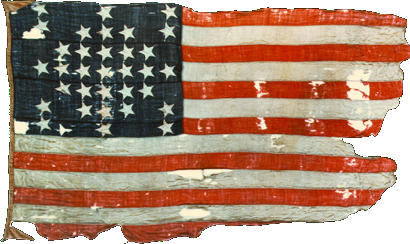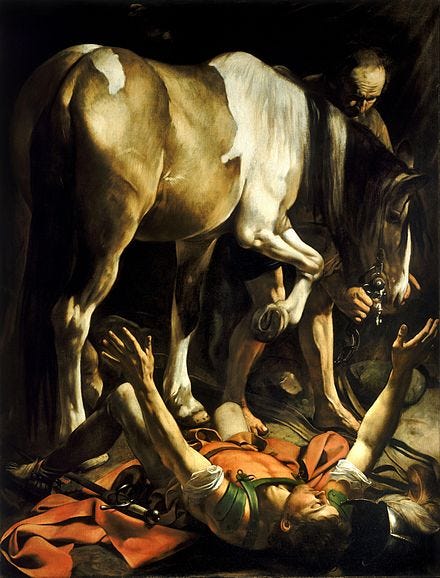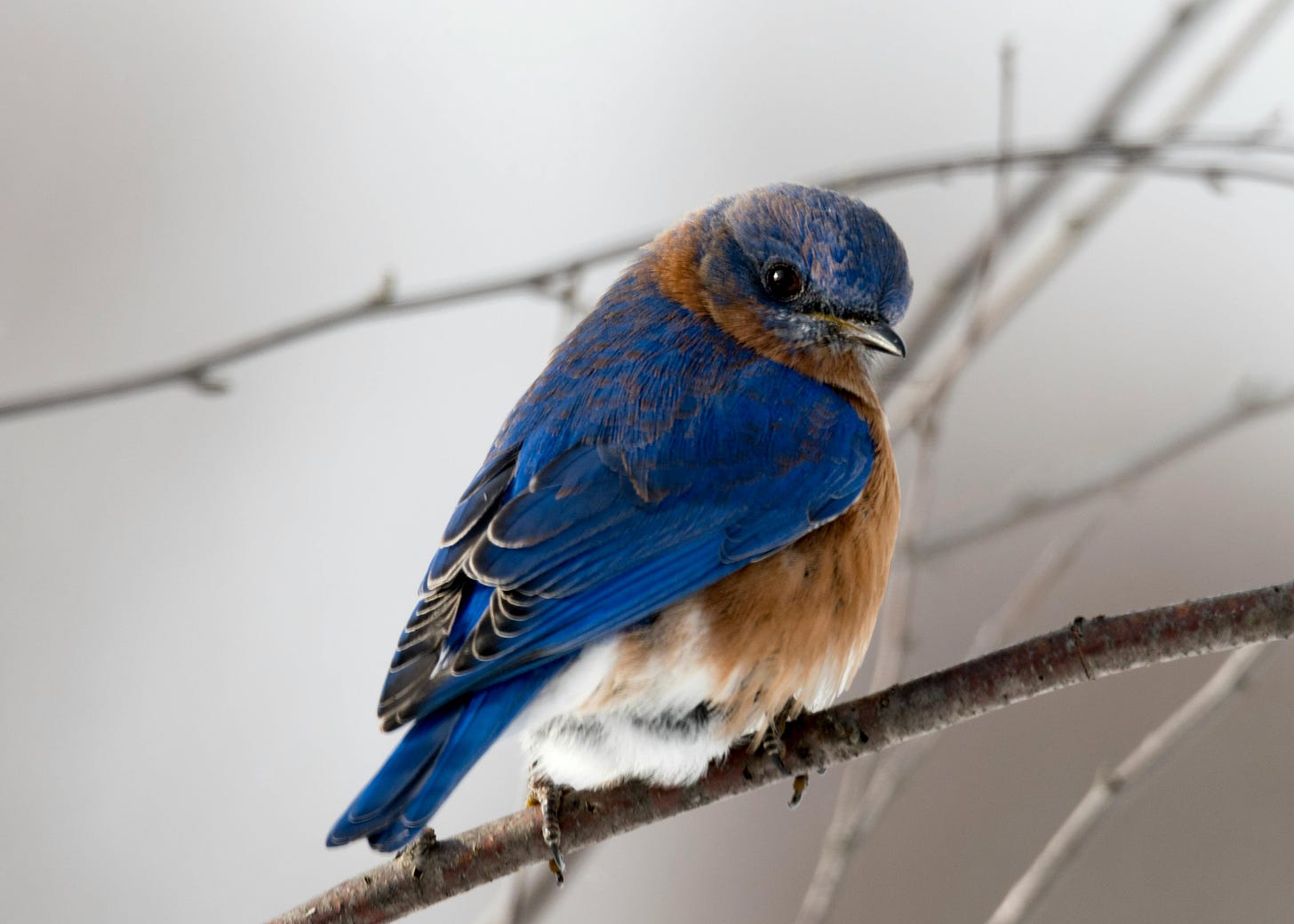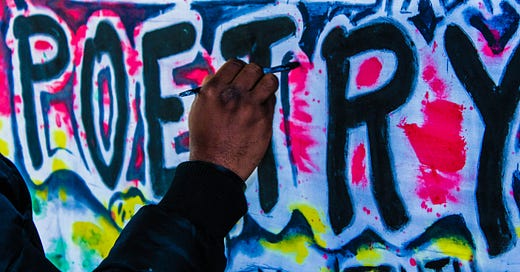Three Writers on My Mind after the Election
Plus, four words of encouragement from Emily Dickinson
We have had an election here in the States. Perhaps you heard. Today’s special issue of Quiet Reading comes like an outstretched hand of fellowship on the day after. Whatever your citizenship or feelings about this event, we inhabit this small planet together. Literature lets us refract our immediate feelings to consider next steps, and it gives us a ground where we can speak.
This morning, I keep thinking of an extravagant phrase written by the young Bret Harte in February 1861, while he was giddy with the after-effects of a rousing speech on the occasion of George Washington’s birthday.
“Oh, if the day of omens be not passed …”
I know, I know, it’s fulsome and Victorian, hardly suited to our skeptical age. Day of omens, indeed. But bear with me. Some days call for extravagant speech. Bret Harte is one of three writers on my mind today, helping me find Emily Dickinson’s famous “thing with feathers” — hope.
I. Day of Omens, 1861
Between the November election of 1860 and George Washington’s birthday on February 22, 1861, seven states declared themselves disunited (seceded) from the United States: South Carolina first in December, followed by Mississippi, Florida, Alabama, Georgia, Louisiana, and Texas. Four more states would follow.
The most renowned orator at the time on the west coast, Thomas Starr King, gave the keynote address at the end of a day of civic festivities held by Union supporters in San Francisco on the occasion of Washington’s birthday. In a packed music hall, King praised Washington for quashing the nation’s first anti-federalist insurrections. He scoffed at President James Buchanan, a “lump of shilly-shally incarnate,” for allowing South Carolina and others to exit the Union at will.
Holding the Union together required strong leadership, King argued. His audience understood that the lecture on Washington’s character was also a sketch of the kind of leadership required in 1861.
The poet and newspaper writer Bret Harte was in the “spellbound audience” that “arose from their cramped positions and went wonderingly away as in a dream.” Walking home, so enraptured was he with King’s speech that he fancied the wind blowing in from the Pacific might “drift steadily toward the east” and even “straighten and stiffen the red bars of the national flag,” then sagging with the nation’s discord.
The young poet allowed his awed feelings to gush over into the review he posted of King’s lecture for a local newspaper the next day. He prolonged his fancy of the west wind on a “mission” to strengthen the flag in the east:
Oh, if the day of omens be not passed, would it have been wrong to have whispered it “God speed” on that mission? That it might meet and greet our Eastern brothers as the grateful land wind met the first discoverer of our ever-blessed country, even in the midst of mutiny and despair? That it might steal into the hearts of the rebellious crew of that laboring ship of State, as the west wind, fragrant with the spiced breath of the welcoming land, stole into the senses of the distracted mutineers and drew them gently to the land?1
Whatever your thoughts on European explorers and conquerors, it is hard to resist Harte’s youthful hope in the spiced, fragrant wind as a sensory delight so enchanting that political rivalries slip to inconsequence.
Under the influence of a stirring speech, Harte hoped.
Of course, we know what came next. Within two months, South Carolina attacked federal troops at Fort Sumter, and a four-year Civil War began.
I don’t mean to suggest that hopes are always fulfilled to the letter. But I’m thinking today about the uplift it gave Harte to consider “the day of omens” as “not passed.” Why couldn’t a miracle happen in his time, or in ours?
Not the miracle of choice, maybe, but a different one, unexpected.
II. The Road to Damascus, c. 33 AD
Before I reached for Bret Harte this morning, I reached for the Acts of the Apostles. I wanted to read exactly how Saul, the persecutor of Christians, became Saint Paul, one of the movement’s most revered saints.
In 2016, when Trump lost the popular vote and won the electoral vote for president, I decided to find a bright side: Maybe the office would inspire the man to find his better angels napping, and wake them up.
I know what happened instead. My hope, like Bret Harte’s, did not produce results outside my own imagination.
Still.
Miracles happen.
What if the day of miracles be not passed?
“Meanwhile,” writes the author of the Acts of the Apostles, “Saul was still breathing out murderous threats against the Lord’s disciples….” On the way to imprison some of them,
suddenly a light from heaven flashed around him. He fell to the ground and heard a voice say to him, “Saul, Saul, why do you persecute me?” … The men traveling with Saul stood there speechless; they heard the sound but did not see anyone. … For three days [Saul] was blind, and did not eat or drink anything.
The Lord sends trepidatious Ananias to restore Saul’s sight. He lays hands on his would-be jailer and gives him a blessing, and Saul gets his sight back. Then he has to convert wary Christians that he is one of them.
Imagine how they would have disbelieved him.
The Saul-Paul story is well known. I am thinking of what it took for Ananias to answer the call to visit the man known for persecuting his kind. I am thinking of how Paul’s conversion could not have happened without the courage of Ananias.
Miracles happen when humans quiet their angers and fears and hear the voice that propels them to do something preposterously hopeful, an act whose consequence cannot yet be seen or guessed.
Someone is always breathing out murderous threats.
The Acts of the Apostles offers a remarkable story of how to meet a blowhard. It is not a story of despair.
III. The Thing with Feathers
I have only memorized the first four lines, but I see it is time to commit to my blood the entirety of Emily Dickinson’s poem about hope.
What do you suppose the author knew of suffering or fear to inspire the third stanza of this poem? Or just line four?
“Hope” is the thing with feathers - That perches in the soul - And sings the tune without the words - And never stops - at all - And sweetest - in the Gale - is heard - And sore must be the storm - That could abash the little Bird That kept so many warm - I’ve heard it in the chillest land - And on the strangest Sea - Yet - never - in Extremity, It asked a crumb - of me. Emily Dickinson
I want to go out into the day with the ideas of this poem in my pocket:
Hope asks nothing of me. Really?
Hope is just there in the soul, perching, evidently a native of the place.
Some storms can abash “the little Bird,” but they must be very, very “sore.”
Hope keeps us warm.
Hope does not need language. It sings without words.
And maybe my favorite four words for today, from line four:
Hope “never stops - at all.”
There may seem to be a bit of conflict between this line and stanza two, with its “sore” storm. But I like to think the stanzas coexist sublimely. The bird does not “die” in stanza two, after all; it is only buffeted, bashed, and abashed by the worst of storms. Evidently, even abashed, it sings sweetly, never stopping.
I know that it is not the mission of every writer to reach for improbable hopes.
, , , , and many others can inspire your political activism and philosophy. We need them, and we need action.But we also need hope.
If your hope is abashed today, check for a pulse; it may not be dead.
Any day is a good day for omens.
Any day is a good day for a man breathing “murderous threats” to be stopped mid-intention and reassess his works.
Sing, hope, sing.
And if your name is Ananias, listen for instructions. You’ll know them by their sweet voice and by the surge of peace to the hands.
Bret Harte, “Washington,” The Writings of Bret Harte, Vol. 20, Houghton Mifflin, pp. 120-22. Link to Google Books edition. Starr King’s speech was also described more literally in other newspapers of the day, some digitized in the California Digital Newspaper Database at University of Nevada, Reno.



















FELICES Y GRACIAS TARA PENRY Y QUIET READING
DELICES Y GRACIAS TARA PENRY